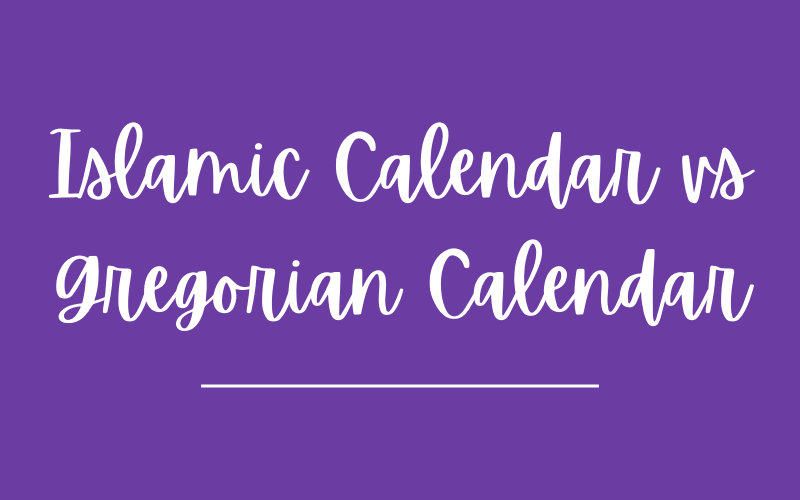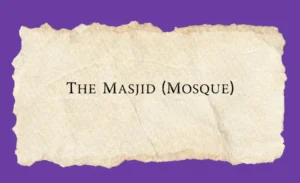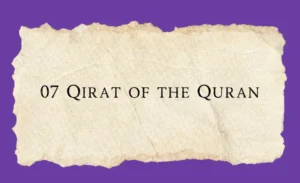Time is one of the greatest blessings of Allah ﷻ, and how we measure it shapes our lives, faith, and history. Throughout civilizations, different calendars have been developed to organize human life. Today, two of the most important systems are the Islamic (Hijri) Calendar and the Gregorian Calendar.
The Islamic Calendar, rooted in the Hijrah of Prophet Muhammad ﷺ, is a lunar calendar used by Muslims worldwide to determine the dates of sacred months, Ramadan, Hajj, Eid, and other religious obligations. On the other hand, the Gregorian Calendar, introduced in 1582 by Pope Gregory XIII, is a solar calendar that governs most of the modern world for civil, social, and economic purposes.
Understanding the differences, history, and significance of both calendars not only helps us manage daily life but also deepens our appreciation of how Islam connects the passage of time to worship and spirituality. This article explores the Islamic Calendar vs Gregorian Calendar, highlighting their origins, key differences, and their relevance for Muslims today, supported with Qur’anic verses, Hadiths, and authentic references.
What is the Islamic Calendar (Hijri Calendar)?
The Islamic Calendar, also known as the Hijri Calendar, is a purely lunar calendar consisting of 12 months in a year of 354 or 355 days. Unlike the solar-based Gregorian calendar, the Hijri calendar follows the cycles of the moon, which is why Islamic months shift about 10–11 days earlier each year in the Gregorian calendar. It was officially established during the caliphate of Umar ibn al-Khattab (RA) in 622 CE, beginning from the historic Hijrah (migration) of Prophet Muhammad ﷺ from Makkah to Madinah.
This event marked a new chapter in Islamic history, symbolizing sacrifice, faith, and the establishment of the first Muslim community. The Hijri calendar is central to Islam, as it determines important religious events such as Ramadan, Hajj, Eid al-Fitr, Eid al-Adha, Muharram, and the sacred months. For Muslims, it is not just a way of counting days but a spiritual guide that connects the flow of time with worship, remembrance, and obedience to Allah ﷻ.
Quranic Reference
Allah ﷻ mentions the significance of months in the Qur’an:
Arabic: إِنَّ عِدَّةَ الشُّهُورِ عِندَ اللَّهِ اثْنَا عَشَرَ شَهْرًا فِي كِتَابِ اللَّهِ يَوْمَ خَلَقَ السَّمَاوَاتِ وَالْأَرْضَ مِنْهَا أَرْبَعَةٌ حُرُمٌ
Transliteration:
Inna ‘iddata-shuhūri ‘inda-llāhi ithnā ‘ashara shahran fī kitābi-llāhi yawma khalaqa-s-samāwāti wa-l-ard, minhā arba‘atun ḥurum.
Translation:
“Indeed, the number of months with Allah is twelve [lunar] months in the register of Allah from the day He created the heavens and the earth; of these, four are sacred.” (Surah At-Tawbah 9:36)
This verse highlights the divine order of time as decreed by Allah ﷻ, confirming that there are twelve months in a lunar year, out of which four are sacred. These sacred months: Dhul-Qadah, Dhul-Hijjah, Muharram, and Rajab, hold special importance, where fighting and injustice are prohibited, and worship is encouraged. The verse reminds believers that the Islamic calendar is rooted in divine wisdom, not human invention, and should be respected in both worldly affairs and spiritual practices.
What is the Gregorian Calendar?
The Gregorian Calendar is a solar calendar introduced by Pope Gregory XIII in 1582 CE. It replaced the earlier Julian calendar and is now the international civil calendar used worldwide. It consists of 12 months totaling 365 days, with a leap year every 4 years (366 days). Unlike the Islamic calendar, the Gregorian calendar is not tied to religion but is based on solar cycles, making it suitable for agriculture, trade, and global synchronization.
| Key Differences Between the Islamic Calendar and Gregorian Calendar | ||
| Feature | Islamic Calendar (Hijri) | Gregorian Calendar |
| Type | Lunar (based on moon cycles) | Solar (based on sun cycles) |
| Year Length | 354 or 355 days | 365 or 366 days |
| Months | 12 (29-30 days each) | 12 (28-31 days each) |
| Start Point | Hijrah of Prophet Muhammad ﷺ (622 CE) | Birth of Prophet Isa (Jesus, peace be upon him) |
| Religious Importance | Determines Islamic months, Ramadan, Hajj, Eid | Used for civil, global, and economic purposes |
| Shifts | 10-11 days earlier each Gregorian year | Fixed seasonal alignment |
Importance of the Islamic Calendar in Islam
The Islamic calendar is not just a timekeeping tool but a religious framework for Muslims. Major acts of worship depend on it:
- Ramadan (Fasting): begins with sighting of the crescent moon.
- Hajj (Pilgrimage): performed in the month of Dhul-Hijjah.
- Eid al-Fitr & Eid al-Adha: based on lunar dates.
- Sacred Months: where fighting is prohibited and worship is increased.
The Islamic calendar holds deep religious importance, as it governs the timing of essential acts of worship and spiritual events in Islam. From fasting in Ramadan to performing Hajj in Dhul-Hijjah, and celebrating Eid al-Fitr and Eid al-Adha, all are determined by the lunar months. It also identifies the sacred months, where peace, reflection, and increased devotion are emphasized, making the Hijri calendar a true spiritual guide for a Muslim’s life.
Hadith Reference
The Prophet Muhammad ﷺ said:
Arabic: الصِّيَامُ يَوْمَ تَصُومُونَ، وَالْفِطْرُ يَوْمَ تُفْطِرُونَ، وَالأَضْحَى يَوْمَ تُضَحُّونَ
Transliteration:
“As-Siyāmu yawma taṣūmūn, wa-l-Fiṭru yawma tuftiṛūn, wa-l-Aḍḥā yawma tuḍaḥḥūn.”
Translation:
“Fasting is the day you all fast, breaking the fast is the day you all break it, and sacrifice is the day you all offer it.” (Tirmidhi, Hadith 697)
This hadith emphasizes the collective observance of Islamic dates based on the lunar calendar. It shows that fasting, Eid celebrations, and sacrifice are not individual acts but community-wide practices tied to the sighting of the moon. The Prophet ﷺ highlighted that unity in following the Hijri calendar is essential for maintaining harmony in worship and Islamic rituals.
Why do Muslims Still Use the Gregorian Calendar?
While Muslims rely on the Hijri calendar for religious observances, the Gregorian calendar is necessary for:
- Business and international trade
- Education and academic systems
- Government and global communication
Thus, Muslims today use both calendars side by side and Hijri for religious life and Gregorian for worldly matters. Islamic community continues to use the Gregorian calendar in daily life because it is the global standard for business, education, government, and communication. At the same time, the Hijri calendar remains essential for religious observances such as Ramadan, Hajj, and Eid. This balance allows Muslims to maintain their spiritual identity while also engaging effectively in the modern world.
Spiritual Lessons from the Hijri Calendar
The Hijri calendar teaches Muslims:
- The importance of time management in worship.
- Reflection on the Hijrah of Prophet Muhammad ﷺ as a turning point in Islamic history.
- Awareness that life is temporary, and every year brings us closer to our meeting with Allah ﷻ.
The Hijri calendar serves as a reminder that time is a trust from Allah ﷻ and must be used wisely in worship and good deeds. It connects Muslims to the Hijrah of Prophet Muhammad ﷺ, symbolizing sacrifice, patience, and new beginnings. Each passing year in the lunar cycle reminds believers of the shortness of life and the need to prepare for the eternal meeting with Allah ﷻ.
Quranic Reminder
Arabic: وَهُوَ الَّذِي جَعَلَ اللَّيْلَ وَالنَّهَارَ خِلْفَةً لِّمَنْ أَرَادَ أَن يَذَّكَّرَ أَوْ أَرَادَ شُكُورًا
Transliteration:
Wa huwa alladhī ja‘ala-l-layla wa-n-nahāra khilfatan liman arāda an yadhdhakkara aw arāda shukūrā.
Translation:
“And it is He who has made the night and the day in succession for whoever desires to remember or desires gratitude.” (Surah Al-Furqan 25:62)
This verse reminds believers that the alternation of night and day is a sign from Allah ﷻ, designed for reflection and gratitude. Time itself is a blessing, giving opportunities to worship, repent, and remember Allah. The Hijri calendar, built upon these cycles, encourages Muslims to value every moment as a means of drawing closer to their Creator.
A Calendar for Worship and A Calendar for the World
The Islamic Calendar (Hijri) and the Gregorian Calendar represent two different approaches to timekeeping; one spiritual and the other worldly. While the Gregorian calendar dominates global civil life, the Islamic calendar holds deep religious, historical, and spiritual significance for Muslims. By understanding and respecting both calendars, Muslims can balance their faith-based obligations with their daily responsibilities in the modern world.







29 Responses
Fascinating article
Hi i think that i saw you visited my web site thus i came to Return the favore Im attempting to find things to enhance my siteI suppose its ok to use a few of your ideas
Your writing has a way of resonating with me on a deep level. It’s clear that you put a lot of thought and effort into each piece, and it certainly doesn’t go unnoticed.
Hi my family member and I want to say that this post is awesome nice written and come with approximately all significant infos I would like to peer extra posts like this
Your blog is a treasure trove of valuable insights and thought-provoking commentary. Your dedication to your craft is evident in every word you write. Keep up the fantastic work!
Usually I do not read article on blogs however I would like to say that this writeup very compelled me to take a look at and do so Your writing taste has been amazed me Thanks quite nice post
Excellent blog here Also your website loads up very fast What web host are you using Can I get your affiliate link to your host I wish my web site loaded up as quickly as yours lol
Your writing has a way of resonating with me on a deep level. It’s clear that you put a lot of thought and effort into each piece, and it certainly doesn’t go unnoticed.
Its like you read my mind You appear to know so much about this like you wrote the book in it or something I think that you can do with a few pics to drive the message home a little bit but other than that this is fantastic blog A great read Ill certainly be back
I loved reading this
Excellent blog here Also your website loads up very fast What web host are you using Can I get your affiliate link to your host I wish my web site loaded up as quickly as yours lol
Excellent blog here
I’ve read several just right stuff here Certainly bookmarking for revisiting I wonder how a lot effort you place to create this kind of great informative website
I do agree with all the ideas you have introduced on your post They are very convincing and will definitely work. Thank you for the post
Hi Neat post
Usually I do not read article on blogs however I would like to say that this writeup very compelled me to take a look at and do it Your writing style has been amazed me Thank you very nice article
I’ve been following your blog for quite some time now, and I’m continually impressed by the quality of your content. Your ability to blend information with entertainment is truly commendable.
I am surprised with the research you made to make this actual submit amazing Wonderful task
Somebody essentially help to make significantly articles Id state This is the first time I frequented your web page and up to now I surprised with the research you made to make this actual post incredible Fantastic job
I have been surfing online more than 3 hours today yet I never found any interesting article like yours It is pretty worth enough for me In my opinion if all web owners and bloggers made good content as you did the web will be much more useful than ever before
Your writing is like a breath of fresh air in the often stale world of online content. Your unique perspective and engaging style set you apart from the crowd. Thank you for sharing your talents with us.
Thank you for sharing with us.
I loved much.
Your blog has quickly become one of my favorites. Your writing is both insightful and thought-provoking, and I always come away from your posts feeling inspired. Keep up the phenomenal work!
Every time I visit your website, I’m greeted with thought-provoking content and impeccable writing. You truly have a gift for articulating complex ideas in a clear and engaging manner.
I wanted to take a moment to commend you on the outstanding quality of your blog. Your dedication to excellence is evident in every aspect of your writing. Truly impressive!
Your blog has quickly become my go-to source for reliable information and thought-provoking commentary. I’m constantly recommending it to friends and colleagues. Keep up the excellent work!
I have been browsing online more than three hours today yet I never found any interesting article like yours It is pretty worth enough for me.
Simply wish to say your article is as amazing The clearness in your post is just nice and i could assume youre an expert on this subject Well with your permission let me to grab your feed to keep updated with forthcoming post Thanks a million and please carry on the gratifying work